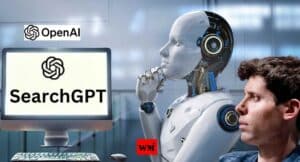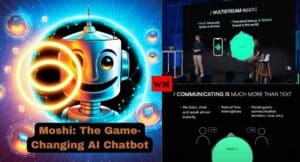
Experience the Future of AI with SearchGPT
In a world overflowing with information, finding exactly what you need can be daunting. That’s where SearchGPT comes in. Imagine trying to locate a needle in a haystack. Traditional search engines might give you a list of haystacks to sort through, but SearchGPT finds that needle for you directly.
As digital landscapes become more complex, the demand for precise and efficient information retrieval systems increases. Businesses, researchers, and everyday users all need tools that cut through the noise and deliver relevant results quickly. That’s the beauty of specialized AI models like SearchGPT.
This blog will explore the ins and outs of SearchGPT, its unique features, applications, and future potential. We’ll dive into how it works, where it excels, and even discuss its limitations. By the end, you’ll understand why SearchGPT is a game-changer in the realm of information retrieval. So, let’s get started on this journey to uncover how this innovative tool can transform the way you search and find information.
What is SearchGPT?
SearchGPT is a specialized AI model designed to streamline information retrieval, offering precise and relevant results. Think of it as a supercharged search engine that doesn’t just give you a list of possible answers but delivers the exact information you’re looking for. Unlike traditional search engines that may provide a broad range of results, SearchGPT focuses on giving you accurate and specific answers, saving you time and effort.

Purpose
The primary goal of SearchGPT is to provide users with accurate information quickly, making research and data gathering more efficient. Whether you’re a student working on a project, a professional conducting market research, or just someone trying to find a quick fact, SearchGPT can help. By understanding the context and nuances of your query, it can deliver the most relevant results right away.
Key Features
What sets SearchGPT apart from other tools? Here are some standout features:
- Advanced Filtering: SearchGPT can filter through vast amounts of data to find exactly what you need. It eliminates irrelevant information and focuses on delivering precise results.
- Contextual Understanding: Unlike basic search engines, SearchGPT understands the context of your query. This means it can differentiate between similar terms and provide results that truly match your intent.
- User-Friendly Interface: The interface is designed to be intuitive and easy to use, even for those who aren’t tech-savvy. You can start searching immediately without needing a lot of setup or technical knowledge.
SearchGPT‘s ability to combine these features makes it a powerful tool for anyone needing reliable and quick access to information. By leveraging advanced AI technology, it transforms how we search for and find data, making the process smoother and more efficient.
The Evolution of GPT Models
Historical Context
GPT models have come a long way since their inception, evolving from basic text generators to sophisticated AI systems capable of understanding and generating human-like text. The journey began with the development of GPT-1 by OpenAI, which introduced the concept of using transformer architecture for natural language processing (NLP). GPT-1 was a groundbreaking step that showcased the potential of AI in understanding and generating text.
Key Developments
The evolution of GPT models has been marked by significant milestones. One of the most notable advancements was the transition from GPT-2 to GPT-3. GPT-2 built on the foundation laid by its predecessor, offering improved performance and the ability to generate more coherent and contextually relevant text. However, it was GPT-3 that truly revolutionized the field.
GPT-3 introduced more nuanced language processing capabilities, boasting 175 billion parameters compared to GPT-2’s 1.5 billion. This massive increase in parameters allowed GPT-3 to understand and generate text with a level of sophistication previously unseen in AI models. It could perform tasks such as translation, summarization, and even creative writing with remarkable accuracy. The leap from GPT-2 to GPT-3 demonstrated the immense potential of AI in transforming how we interact with text-based information.

Specialization
As GPT models became more advanced, the need for more targeted applications led to the trend towards specialization. General-purpose models like GPT-3 were incredibly powerful but lacked the fine-tuning required for specific tasks. This gap gave rise to specialized GPT models tailored for particular applications, leading to the creation of models like SearchGPT.
The move towards specialization arose from the need for more precise and efficient solutions. For instance, while a general-purpose model could provide a broad range of answers, a specialized model like SearchGPT focuses on delivering highly relevant and accurate results for search queries. This specialization ensures that users get exactly what they need without sifting through irrelevant information.
Specialized models are trained on specific datasets and fine-tuned to understand the unique requirements of their target applications. In the case of SearchGPT, it means being able to understand complex queries, filter out noise, and deliver pinpoint accurate results. This trend towards specialization is a natural progression as AI continues to integrate deeper into various fields, requiring more tailored solutions to meet diverse needs.
The evolution of GPT models reflects the broader trajectory of AI development—starting from basic functionalities, achieving significant breakthroughs with models like GPT-3, and moving towards specialized applications that offer precision and efficiency. As we continue to push the boundaries of what’s possible with AI, specialized models like SearchGPT will play an increasingly crucial role in how we access and use information.
How SearchGPT Works
Understanding the inner workings of SearchGPT can help appreciate the sophistication behind this powerful tool. It uses cutting-edge technology and sophisticated algorithms to deliver fast, accurate, and relevant results tailored to the user’s needs. Let’s break down the process to see how it all comes together.
Technology
SearchGPT leverages advanced natural language processing (NLP) and machine learning algorithms to understand and process queries. NLP is a branch of artificial intelligence that helps computers understand, interpret, and generate human language. By combining NLP with machine learning, SearchGPT can comprehend the context of a query, even if it’s complex or nuanced.
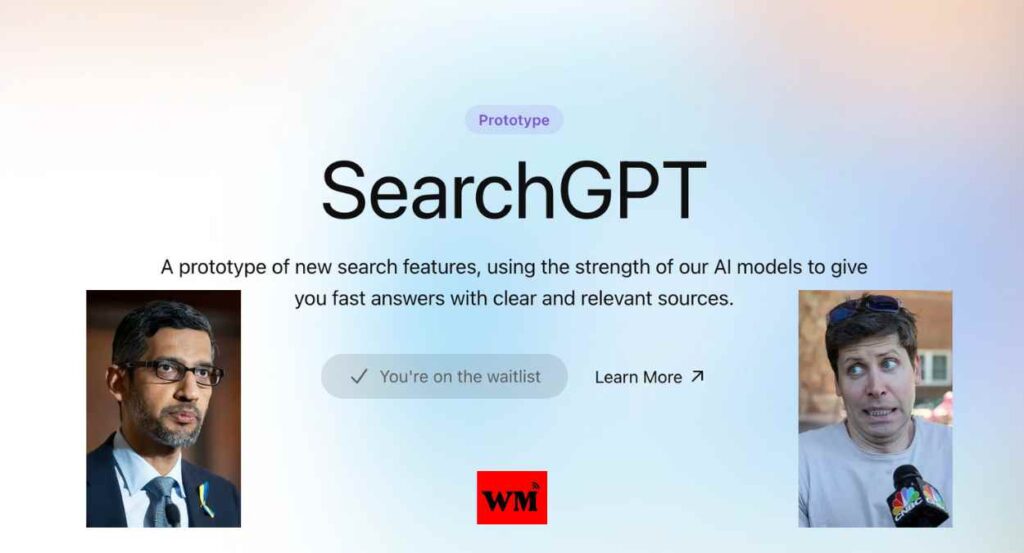
Machine learning allows SearchGPT to improve over time. As more users interact with it, the model learns from these interactions, refining its understanding and response generation capabilities. This ongoing learning process ensures that SearchGPT remains up-to-date with the latest information and user preferences.
Algorithms
The backbone of SearchGPT’s functionality lies in its algorithms. It employs transformers and attention mechanisms to provide accurate and relevant responses. Transformers are a type of model architecture that processes input data in parallel, making them highly efficient and capable of handling large datasets.
The attention mechanism is a critical component of transformers. It allows the model to focus on the most relevant parts of the input data, effectively filtering out noise and zeroing in on important details. This selective attention is what enables SearchGPT to understand the context of a query and generate precise responses.
Workflow
The workflow of SearchGPT can be broken down into a few simple steps:
- Query Entry: When you enter a query, SearchGPT immediately begins processing it. This step involves breaking down the query into its fundamental components and understanding the context.
- Context Analysis: The model analyzes the context of the query. This means understanding not just the words but also the intent behind them. For example, it distinguishes between “apple” the fruit and “Apple” the technology company based on the query context.
- Data Filtering: SearchGPT filters through vast datasets to find the most relevant information. It applies advanced filtering techniques to weed out irrelevant data, focusing only on what’s pertinent to the query.
- Response Generation: Using the refined data, SearchGPT generates a response that directly addresses the query. This process is incredibly fast, often delivering results within seconds.
- Result Delivery: The final step is presenting the results to the user in an easy-to-understand format. The user interface is designed to be intuitive, making it simple for anyone to navigate and find the information they need.
Use Cases
The versatility of SearchGPT makes it suitable for a wide range of applications:
- Researchers: Academics and scientists can use SearchGPT to find specific data points, literature, and studies relevant to their fields. This can save hours of manual searching and ensure that they get accurate, peer-reviewed information.
- Businesses: Companies can leverage SearchGPT for market insights, competitor analysis, and customer feedback. For instance, a marketing team might use it to analyze social media trends and develop strategies based on current consumer interests.
- Content Creators: Writers and content creators can use SearchGPT to gather information, verify facts, and generate new ideas. This can help produce high-quality content more efficiently.
- Everyday Users: Even for everyday tasks like finding a recipe, looking up historical facts, or getting quick answers to trivia, SearchGPT proves invaluable.
In essence, SearchGPT is a versatile and powerful tool that harnesses the latest advancements in AI to make information retrieval faster and more accurate. Whether for professional use or everyday inquiries, its robust technology and sophisticated algorithms ensure that users get the most relevant and precise information available.
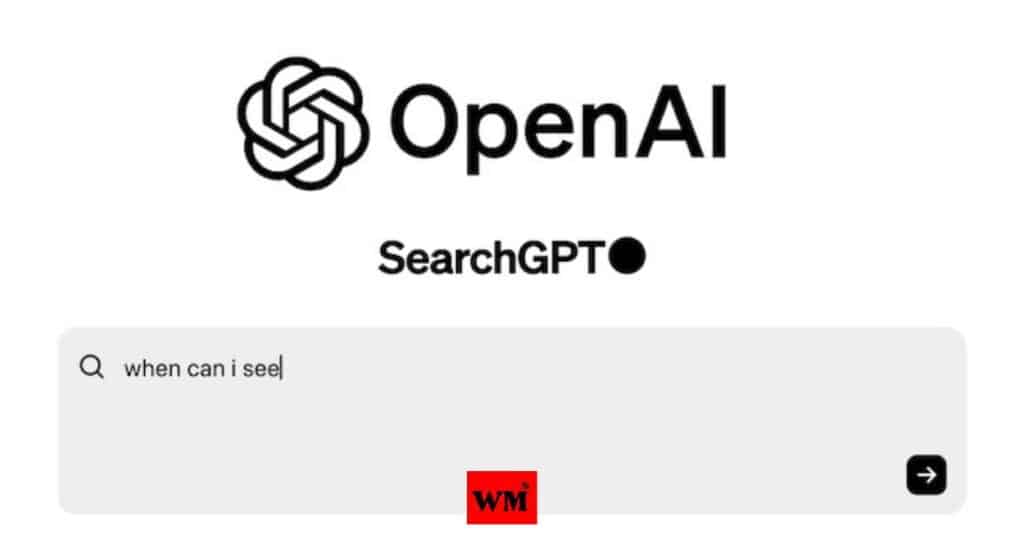
Applications of SearchGPT
SearchGPT is a versatile tool with numerous applications across various fields. Its ability to provide precise, relevant information quickly makes it invaluable for businesses, academics, content creators, and many others. Let’s explore how different sectors leverage SearchGPT to enhance their operations and achieve their goals.
Business Use
In the business world, information is power. Companies use SearchGPT for market research, competitive analysis, and customer insights, significantly enhancing their strategic decisions.
- Market Research: Businesses need to understand market trends, customer preferences, and emerging opportunities. SearchGPT can analyze vast amounts of data to identify trends and patterns that might not be immediately apparent. For example, a company launching a new product can use SearchGPT to study market needs, helping them tailor their product to meet consumer demands.
- Competitive Analysis: Knowing what competitors are up to is crucial for staying ahead. SearchGPT can gather and analyze data on competitors’ strategies, products, and market positions. This information can be used to develop competitive strategies, identify market gaps, and innovate. For instance, a tech company might use SearchGPT to track new developments in the industry, ensuring they stay on the cutting edge.
- Customer Insights: Understanding customers is key to any business’s success. SearchGPT can analyze customer feedback, reviews, and social media interactions to provide insights into customer preferences and pain points. This helps businesses improve their products, services, and customer interactions. For example, a retail company can use SearchGPT to analyze customer reviews and adjust their offerings based on customer feedback.

Academic Use
For researchers and academics, SearchGPT is a game-changer. Its ability to process and understand complex queries makes it ideal for literature reviews, data gathering, and trend analysis, saving hours of manual work.
- Literature Reviews: Academics spend a significant amount of time reviewing existing literature. SearchGPT can streamline this process by quickly finding relevant papers, articles, and books. It can also provide summaries and highlight key points, making it easier for researchers to get up to speed on their topics.
- Data Gathering: Researchers often need specific data points for their studies. SearchGPT can sift through vast datasets to find the precise information needed. For example, a scientist researching climate change might use SearchGPT to gather data on temperature changes, CO2 levels, and other relevant metrics.
- Trend Analysis: Keeping up with the latest trends in a field is crucial for academics. SearchGPT can analyze recent publications, conference proceedings, and other sources to identify emerging trends. This helps researchers stay current and ensures their work remains relevant.
Content Creation
Content creators, whether they are writers, bloggers, or marketers, find SearchGPT incredibly useful for gathering information, generating ideas, and verifying facts. This ensures their output is high-quality and well-informed.
- Gathering Information: Content creators often need to research various topics. SearchGPT can provide comprehensive information quickly, allowing creators to focus more on writing and less on searching. For instance, a blogger writing about health and wellness can use SearchGPT to find accurate information on the latest diet trends and fitness routines.
- Generating Ideas: Sometimes, the hardest part of content creation is coming up with ideas. SearchGPT can analyze trending topics and suggest fresh, relevant ideas for articles, videos, or social media posts. This helps creators keep their content engaging and timely.
- Verifying Facts: Accuracy is crucial in content creation. SearchGPT can verify facts and figures, ensuring that the content is reliable and credible. For example, a journalist can use SearchGPT to fact-check information before publishing an article, maintaining journalistic integrity.

Case Studies
Real-world examples illustrate the effectiveness of SearchGPT in various applications.
- Marketing Firm: A marketing firm used SearchGPT to analyze social media trends and customer sentiments. By understanding what topics and products were gaining traction, they tailored their campaigns to resonate more with their target audience. This approach significantly boosted their campaign effectiveness, leading to higher engagement and conversions.
- Educational Institution: An educational institution used SearchGPT to assist students with research projects. Students could quickly find relevant academic papers and resources, making their research more efficient and thorough. This not only improved the quality of their work but also made the learning process more enjoyable.
- Retail Company: A retail company used SearchGPT to analyze customer feedback from various online platforms. By understanding common customer complaints and preferences, they were able to improve their product offerings and customer service. This led to increased customer satisfaction and loyalty.
- Healthcare Provider: A healthcare provider used SearchGPT to keep up with the latest medical research and developments. Doctors and nurses could quickly access the latest studies and guidelines, ensuring they provided the best care possible. This application of SearchGPT helped improve patient outcomes and streamlined healthcare delivery.
In conclusion, SearchGPT is a powerful tool that can significantly enhance efficiency and effectiveness in various fields. Whether you’re a business professional, academic, content creator, or healthcare provider, SearchGPT offers invaluable insights and capabilities that can transform how you access and use information. By leveraging its advanced AI technology, you can stay ahead of the curve and achieve your goals more efficiently.

Advantages of SearchGPT
SearchGPT stands out as a powerful tool for information retrieval, offering numerous advantages that make it a preferred choice for many users. Let’s explore its key benefits: efficiency, customization, user experience, and how it compares to other tools.
Efficiency
One of the primary advantages of SearchGPT is its efficiency. With its quick processing and accurate results, SearchGPT drastically reduces the time spent on research. Traditional search engines often require users to sift through multiple pages of results to find what they need. SearchGPT, on the other hand, delivers precise and relevant information almost instantaneously.
For instance, a student working on a research paper can use SearchGPT to find scholarly articles, statistics, and relevant data in a matter of seconds. This efficiency not only saves time but also enhances productivity, allowing users to focus more on analyzing information rather than searching for it.
Customization
Another significant benefit of SearchGPT is its customization. Unlike general search engines, SearchGPT is tailored to specific needs, providing more relevant information. This specialization ensures that users receive results that are directly applicable to their queries.
For example, businesses can customize SearchGPT to focus on market research, enabling them to obtain detailed insights into consumer behavior, market trends, and competitor strategies. This level of customization makes SearchGPT a versatile tool that can adapt to various industries and use cases.
User Experience
SearchGPT excels in providing an exceptional user experience. The intuitive interface makes it accessible even for non-technical users, enhancing the overall experience. Users can easily input their queries and receive well-organized results without needing to understand complex technical details.
The design of SearchGPT prioritizes ease of use, with clear navigation and straightforward functionalities. This user-friendly approach ensures that anyone, regardless of their technical expertise, can leverage the full potential of SearchGPT. Whether you’re a professional, a student, or a casual user, the interface is designed to make your search process smooth and efficient.
Comparisons
When compared to traditional search engines and other information retrieval tools, SearchGPT offers several distinct advantages. Unlike traditional search engines that provide a broad range of results, SearchGPT offers deeper insights and more contextual results. It understands the nuances and context of queries, delivering information that is not only accurate but also highly relevant.
Traditional search engines often rely on keywords and page rankings, which can lead to irrelevant results. SearchGPT, however, uses advanced natural language processing (NLP) and machine learning algorithms to comprehend the intent behind queries. This results in more precise answers tailored to the specific needs of the user.
For instance, if you’re looking for recent studies on climate change, a traditional search engine might give you a mix of news articles, blog posts, and research papers. SearchGPT, on the other hand, can filter through the noise and present you with the most relevant academic papers, ensuring that you get the information you need without the hassle.
Therefore, SearchGPT offers significant advantages in terms of efficiency, customization, user experience, and contextual accuracy. Its ability to deliver precise and relevant results quickly makes it an invaluable tool for a wide range of users. Whether you’re conducting market research, academic studies, or simply seeking reliable information, SearchGPT enhances the search process, making it faster, more accurate, and user-friendly.

Challenges and Limitations
While SearchGPT offers numerous benefits, it is not without its challenges and limitations. Understanding these can help users make the most of this powerful tool while being aware of its potential pitfalls.
Potential Issues
Like any technology, SearchGPT isn’t without flaws. One common problem encountered is occasional inaccuracies or bias in the data. Despite advanced algorithms and extensive training, SearchGPT can sometimes provide results that are not entirely accurate or are biased based on the data it has been fed. For example, if the training data includes biased information, the model may inadvertently reflect those biases in its results. This can lead to misinformation or skewed perspectives, which is particularly problematic in fields that require objectivity, such as journalism or academic research.
Data Limitations
Another significant limitation of SearchGPT is related to data scope and availability. Its effectiveness depends heavily on the quality and breadth of the data it’s trained on. If the data is outdated, incomplete, or limited in scope, the results produced by SearchGPT may not be as reliable or comprehensive as desired. This is especially true for niche topics where the available data might be sparse or not frequently updated. For instance, emerging fields or highly specialized areas may not have enough data for SearchGPT to provide detailed and accurate responses.
Ethics
Ethical considerations are crucial when using AI technologies like SearchGPT. Ensuring responsible use and avoiding misuse is critical, especially in sensitive areas such as privacy and misinformation. Users must be vigilant about how they use and interpret the information provided by SearchGPT. For instance, using the tool to spread false information or invading someone’s privacy can have serious ethical implications.
Furthermore, developers and users alike must be aware of the potential for AI to perpetuate existing biases. This involves actively working to identify and mitigate biases in the training data and being transparent about the limitations and potential inaccuracies of the tool. Ethical use also includes being mindful of the privacy of individuals whose data might be processed by the AI. Safeguards should be in place to protect sensitive information and ensure that the use of AI complies with privacy laws and regulations.
We can say while SearchGPT is a powerful and efficient tool, it is essential to be aware of its challenges and limitations. Occasional inaccuracies, data limitations, and ethical considerations must be carefully managed to maximize the benefits of SearchGPT while minimizing potential downsides. By understanding and addressing these issues, users can utilize SearchGPT responsibly and effectively, ensuring it remains a valuable resource for information retrieval.
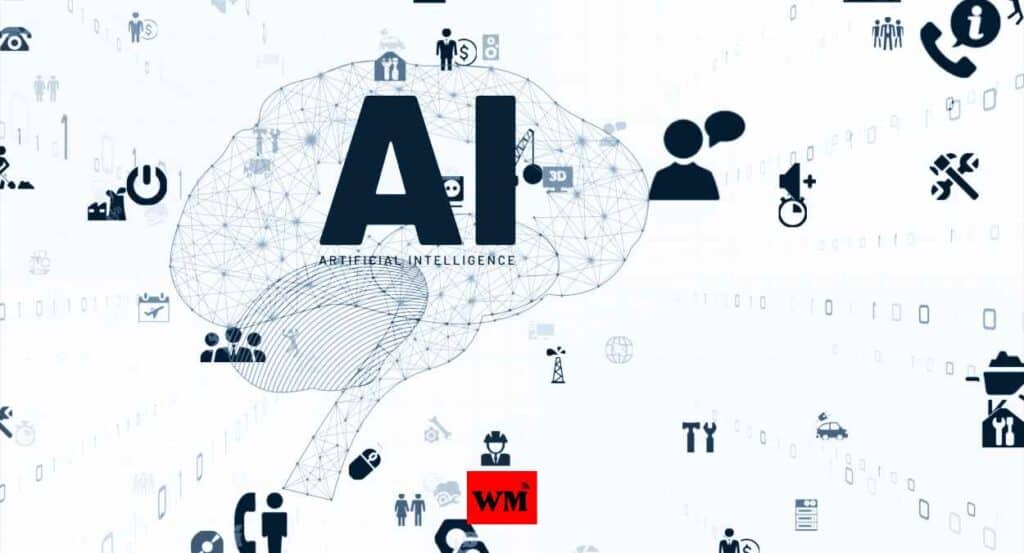
Future of SearchGPT and Specialized AI Models
As technology evolves, the future of SearchGPT and specialized AI models looks incredibly promising. Let’s explore the emerging trends in AI and machine learning, speculate on potential advancements, and highlight the importance of user feedback in shaping these tools.
AI Trends
The future of AI is characterized by a shift towards more personalized and adaptive AI models. These models are designed to understand and respond to the unique needs of individual users, providing highly customized experiences. This trend is driven by the increasing availability of data and advancements in machine learning algorithms. Personalized AI can learn from a user’s interactions and preferences, continually improving its responses and relevance. For instance, an AI that adapts to a user’s specific industry terminology or personal research interests will become increasingly valuable.
Advancements
Looking ahead, we can expect significant enhancements in several key areas of AI technology:
- Accuracy: Future developments will likely focus on improving the accuracy of AI models like SearchGPT. This includes refining algorithms to reduce errors and biases, ensuring more reliable and precise information retrieval.
- Speed: Speed is another area where we can anticipate improvements. Faster processing times mean users can get the information they need almost instantaneously, enhancing productivity and efficiency.
- Complex Queries: The ability to handle more complex queries is a critical area for advancement. As AI models become more sophisticated, they will be better equipped to understand and respond to intricate questions that require deep contextual understanding.
- Integration: Greater integration with other technologies and platforms is also on the horizon. This could mean seamless interaction with other AI tools, databases, and applications, creating a more cohesive and powerful user experience.
User Feedback
User feedback will play a vital role in refining and improving SearchGPT and other specialized AI models. Continuous input from users provides valuable insights into how these tools are being used and where improvements are needed. This feedback loop is essential for addressing any shortcomings and enhancing the model’s performance.
For example, if users consistently report difficulties in getting accurate responses for specific types of queries, developers can focus on those areas to improve the model. Similarly, feedback on user interface design and functionality can lead to more intuitive and user-friendly experiences.
Developers can also use feedback to identify and mitigate biases, ensuring that the AI provides fair and balanced results. This ongoing interaction between users and developers helps create a more robust, reliable, and ethical AI system.
The future of SearchGPT and specialized AI models is bright, with advancements in personalization, accuracy, speed, and complexity handling on the horizon. User feedback will remain a cornerstone of these developments, driving continuous improvement and ensuring that these tools meet the evolving needs of their users. As we look ahead, it’s clear that AI will continue to play a pivotal role in transforming how we access and use information, making it more efficient, accurate, and personalized than ever before.

Getting Started with SearchGPT
Access
Getting started with SearchGPT is easy. Simply visit the SearchGPT platform and sign up for an account. The registration process is straightforward, requiring only basic information. Once you’ve signed up, you can immediately begin exploring the features and capabilities of this powerful tool. The platform is designed to be user-friendly, so even if you’re not tech-savvy, you’ll find it easy to navigate and use.
Tips
To get the most out of SearchGPT, here are a few basic tips:
- Start Simple: Begin with simple queries to familiarize yourself with how SearchGPT works. Enter straightforward questions or search terms and see how the platform responds.
- Explore Advanced Features: Once you’re comfortable with basic searches, gradually explore the advanced features. Use filters and contextual search options to refine your results and get more precise information.
- Experiment: Don’t be afraid to experiment with different types of queries. The more you use SearchGPT, the better you’ll understand its capabilities and how to leverage them for your specific needs.
- Stay Organized: Use the platform’s organizational tools to save and categorize your search results. This will help you keep track of important information and streamline your research process.
Resources
For further learning, SearchGPT offers a variety of resources:
- Tutorials: Check out the tutorials available on the platform. These step-by-step guides can help you understand the different features and how to use them effectively.
- User Guides: Comprehensive user guides provide detailed information on all aspects of SearchGPT. They’re a great reference if you need to look up specific functions or troubleshoot issues.
- Community Forums: Join the community forums to connect with other users. Here, you can share tips, ask questions, and learn from the experiences of others. Engaging with the community can provide valuable insights and enhance your use of SearchGPT.
By taking advantage of these resources, you can maximize the benefits of SearchGPT and make your information retrieval process more efficient and effective.

Frequently Asked Questions( FAQs )
1. What is SearchGPT?
SearchGPT is a specialized AI tool designed for efficient and precise information retrieval, utilizing advanced natural language processing (NLP) and machine learning.
2. How does SearchGPT improve information retrieval?
SearchGPT enhances information retrieval by quickly processing queries, understanding context, and delivering highly relevant and accurate results tailored to specific needs.
3. Can SearchGPT be used for market research?
Yes, SearchGPT is ideal for market research. It analyzes vast amounts of data to provide insights into market trends, consumer behavior, and competitor strategies.
4. How can academics benefit from using SearchGPT?
Academics can use SearchGPT for literature reviews, data gathering, and trend analysis, significantly reducing manual work and improving research efficiency.
5. What makes SearchGPT different from traditional search engines?
Unlike traditional search engines, SearchGPT uses advanced AI, NLP, and machine learning to understand the context of queries and deliver more precise and relevant results.
6. Is SearchGPT user-friendly for non-technical users?
Yes, SearchGPT features an intuitive interface designed to be accessible and easy to use, even for those without technical expertise.
7. How can content creators use SearchGPT effectively?
Content creators can use SearchGPT to gather information, generate new ideas, and verify facts, ensuring high-quality and well-informed content production.
Conclusion
Summary
In summary, SearchGPT is a powerful tool that enhances information retrieval through specialization and advanced AI. Unlike traditional search engines, SearchGPT offers precise and relevant results tailored to the user’s specific needs. It leverages advanced natural language processing and machine learning to deliver quick and accurate information, making it an invaluable resource for various applications.
Impact
The significance of SearchGPT in the broader AI landscape cannot be overstated. Its impact on research, business, and content creation is substantial, marking a new era in information access. For researchers, it streamlines literature reviews and data gathering. Businesses benefit from its ability to provide deep insights into market trends and customer preferences. Content creators find it useful for generating ideas and verifying facts. By addressing the limitations of general search engines, SearchGPT transforms how we interact with information, making the process more efficient and reliable.
Encouragement
Don’t miss out on the benefits of this innovative tool; try SearchGPT today and experience the difference. Whether you’re a student, a professional, or simply someone in need of quick and accurate information, SearchGPT can enhance your productivity and effectiveness. Explore its features, experiment with different queries, and take advantage of the resources available to maximize its potential. With SearchGPT, you can access a wealth of information quickly and easily, tailored specifically to your needs. Give it a try and see how it can transform your information retrieval process.
Also Read:
The Remarkable Journey of S.N. Goenka: Illuminating the Path of Vipassana
Ola’s Game-Changing Move: Ditching Google Maps for In-House Ola Maps
Meet Prafulla Dhariwal: The Pune Prodigy Behind OpenAI’s Revolutionary GPT-4o
The Alarming Rise of Neurological Disorders: A Global Health Crisis
Google’s Urgent Warning: Is Your Google Drive Data Really Safe?
Meet Devin, The AI Software Engineer Shaping the Future of Coding
Deepfakes: The New Face of Online Misinformation and How to Tackle It
















